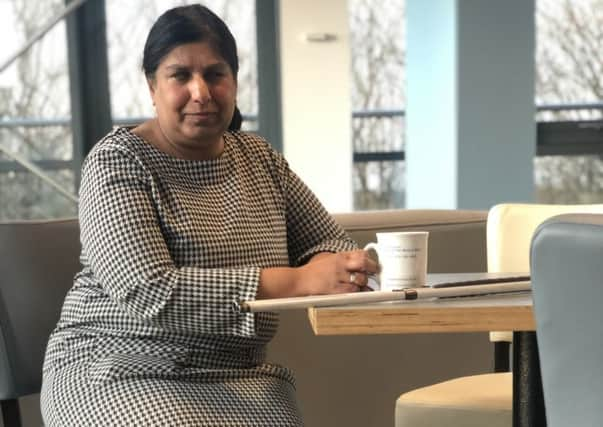Mark O’Donnell: Vision to help those with sight loss face mental health challenges


As a result of the tireless efforts of mental health campaigners and high profile campaigns, stigma around emotional wellbeing is starting to be broken down. People are encouraged to be open about feelings of anxiety, stress and depression. Our workplaces are encouraged to be supportive of people with mental health challenges and be conscious of what they can do to promote good mental health. The Scottish Government launched a ten-year Mental Health Strategy in 2017 to raise awareness and improve support in Scotland.
While awareness has increased of the need to provide the right support for mental health in our communities, the emotional challenges that can come with visual impairment have not been as well understood.
Advertisement
Hide AdAdvertisement
Hide AdOur experience as a charity supporting people with visual impairment has made us keenly aware that with sight loss comes emotional as well as physical impacts. People born with visual impairment still too often face stigma and inequality in our society, in education and employment. People who experience sight loss in later life face huge changes in what they are able to do and how they interact with others. All these experiences can contribute to loneliness, a lack of confidence and stress.
We wanted to raise awareness of how often people with sight loss face mental health challenges. We also wanted to develop an understanding of whether there is adequate support available to them deal with the emotional impact of sight loss. For these reasons we decided to undertake research into this issue with the Mental Health Foundation Scotland, so we could share expertise both on sight loss and mental health.
The findings from this research have informed our joint report Emotional Support for Sight Loss. Nearly 400 people with sight loss took part in the research, which found that 85 per cent had experienced challenges to their mental health as a result of their visual impairment.
However, two-thirds (63 per cent) indicated they had not been offered mental health support such as counselling. The four top challenges to emotional wellbeing identified in our study were worry about the future, feelings of anxiousness, being upset, and feeling angry. These resulted in problems including loss of confidence, diminished self-esteem and people being unable to undertake activities that they had previously been able to engage in.
Our research identifies a range of mental health challenges as a result of sight loss. These include young people requiring counselling to help them manage anxiety linked to their visual impairment, people needing emotional support when their vision deteriorates further and veterans with sight loss experiencing chronic mental health challenges. The findings in the report also make it clear there isn’t enough awareness of the emotional impact of sight loss, or enough support for people with visual impairment for their mental wellbeing, and this needs to change.
Kirin Saeed, a Braille proofreader at the Scottish Braille Press, which is part of Royal Blind, has spoken eloquently about the emotional challenges she has faced in her life due to her visual impairment. Kirin told us: “Too often people think they just have to get on with it, yet you have to fight battles at all levels so much of the time.
“You have to constantly argue for support, argue your case for equipment, argue your case for help with access to work. This is stressful in itself.”
People with sight loss shouldn’t have to fight for support for their emotional wellbeing or search for it. When someone is diagnosed with sight loss it needs to be instantly recognised this is more likely than not to have an impact on them emotionally, and they should be offered support then and throughout their journey with sight loss.
Advertisement
Hide AdAdvertisement
Hide AdIf we are to help people live well with visual impairment and be fully included in our communities, we need to ensure services for people with sight loss includes support for their emotional wellbeing too.
Mark O’Donnell, chief executive, Royal Blind and Scottish War Blinded.